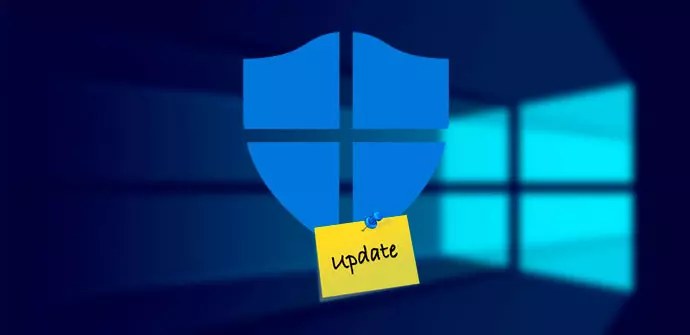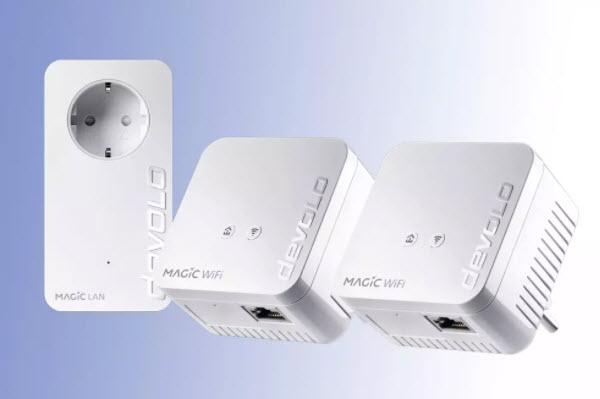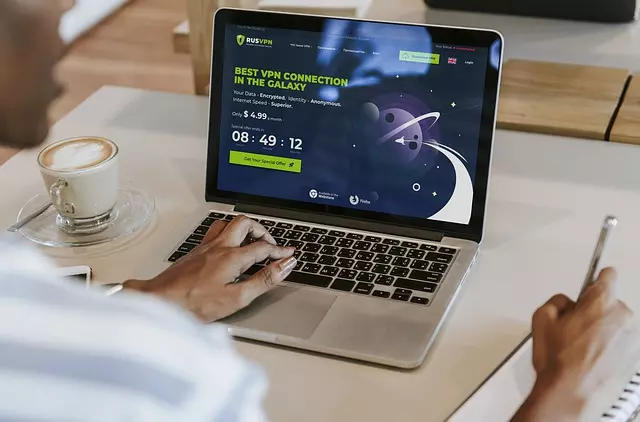
Having an insecure VPN is a major problem
Keep the network security it is something fundamental. We must not at any time expose our data or allow hackers to take control of our equipment. Precisely by using a VPN that is insecure, all this can work against us.
It must be taken into account that a program of this type will receive the data we send via Internet. You can know what we visit, what is our real IP, what devices we use … In short, they can achieve a large amount of information, something that has great value on the network.
This means that we must always choose a VPN that is reliable, that protects our data correctly and does not expose our personal information at any time. But of course, this does not always happen. There are many programs available and especially the ones that are free can be used to steal data.
The extensions for the browser they are very useful tools. We have at our disposal many add-ons that help us in our day-to-day lives, but we must make sure that we are installing software that is not dangerous.
Why a VPN extension can be dangerous
First of all, it must be indicated that a VPN extension it is not always going to be dangerous. It is one more tool that we can install in our browser and we have many available. However, it is true that it could be used for bad purposes. Especially this would happen when we install a free one, which does not meet all security guarantees.
We are going to explain some important issues for which we must be careful when using an add-on of this type in our browser, be it Google Chrome, Mozilla Firefox or any other that we use.
Monitor activity
One of the main objectives of the Malicious VPNs is to monitor user activity. In this way they can collect data on which pages we visit, what services we use, where we are registered …
We must bear in mind that our data has great value on the net. They can be used to include us in spam lists, receive personalized advertising according to interests or that they can even sell it to third companies and thus obtain economic benefit.
Therefore, an insecure VPN extension could be specifically designed for this. It could be aimed primarily at collecting as much data as possible and thus serving the business of a hacker who developed the software.
They can steal our personal data
But this that we mention does not include only more general data, such as the pages visited, where we are, etc. They could also steal personal data like our passwords, bank cards, DNI …
Ultimately through navigation we can send and receive a large amount of content. We can log into our bank accounts, make payments, open social networks … Therefore, they could steal sensitive data and use it against us.
They could contain malware
Of course browser VPNs, especially insecure ones, those that are free and from unknown sources, could contain malicious software. This could happen simply by installing it in the browser. They could actually install malware on our computer.
But also, another issue to keep in mind is that this plugin could be designed to redirect web traffic to unsafe sites. This is when the victim could end up on a page that sneaks malware onto the system.
Consume bandwidth
Are we using a free VPN? This is not only unique to extensions, but also to installed programs. Our bandwidth it could be used by other users, generally those who pay, and thus greatly affect the proper functioning of the connection. We could have speed problems, cuts and, ultimately, a malfunction.
It does not encrypt the real IP
One of the main missions of any VPN is to hide the real IP address. This will allow us to improve privacy when browsing the Internet, but also to skip any possible geographical blocks that may exist.
The problem is that when using extensions as an alternative, in many cases they do not encrypt our IP correctly and there may be leaks. This makes our privacy really not safe and we can have major problems.
How to use a VPN in the browser safely
Therefore, you have to take into account some recommendations to avoid problems. We are going to give some tips to install a plug-in of this type in our browser and that our personal data is always safe.
Always install from official sources
The first step to using a VPN in the browser with complete security is to always install it from sources that are official. Third-party sites should be avoided, as we can download software that has been maliciously modified to steal information and infect computers.
Check that the extension does not change
Also, something important is to check that this complement has not changed over time. It is common for an extension to change ownership and act differently. We can see the permissions that we have granted, as well as the information directly from the browser and make sure that there have not been any changes that could harm us.
Search for information on the Internet
Of course we have the option of inform us well on the Internet about that extension that we are going to install. We can see comments from other users, the assessment they have given, etc. All this helps to correctly choose which program we are going to install and avoid problems.
Have our team protected
The safety it is very important at all levels. We must have programs that protect our equipment. A good antivirus, firewall and other tools can prevent the entry of malicious applications that can steal data and affect us.
Always update the browser
Another tip to avoid problems is to always have the browser correctly updated. There are many vulnerabilities that can be exploited by third parties to achieve their objective. Hence, we must have all the patches and the latest versions that are available.
In short, these are some tips that we can take into account to use the VPN extensions in the browser with total security. This way we will avoid problems that could compromise our security and put the devices at risk.




